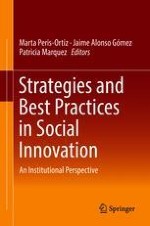2018 | OriginalPaper | Buchkapitel
9. Developing Sustainability Awareness in Higher Education
verfasst von : Rui Pedro Lopes, Cristina Mesquita, María de la Cruz del Río-Rama, José Álvarez-García
Erschienen in: Strategies and Best Practices in Social Innovation
Aktivieren Sie unsere intelligente Suche, um passende Fachinhalte oder Patente zu finden.
Wählen Sie Textabschnitte aus um mit Künstlicher Intelligenz passenden Patente zu finden. powered by
Markieren Sie Textabschnitte, um KI-gestützt weitere passende Inhalte zu finden. powered by
